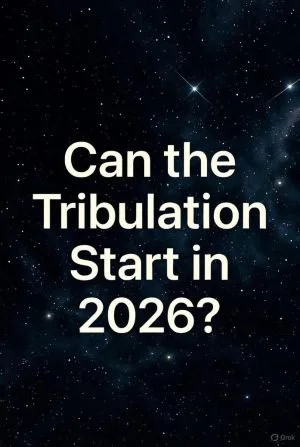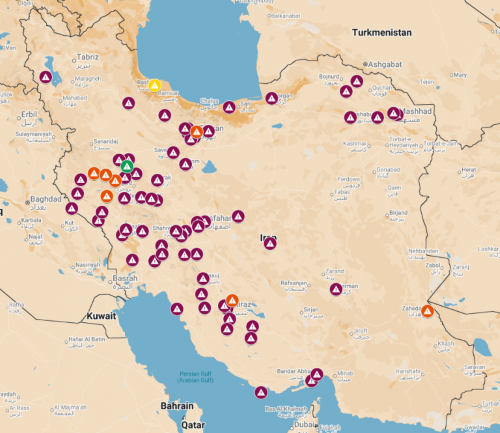(Unsplash photo)
Plastics are all around these days. Are there risks from microplastic and/or nanoplastic particles? Could there be a 4.5 times greater risk of having a stroke because of microplastics? Are there risks of reduced male fertility and cardiovascular issues related to the accumulation of plastics in humans and animals? Where do these small plastic particles come from? How can you reduce your risks? Are nanoplastic particles in water bottled in hard plastic potentially dangerous? What about inhaling toys made of plastic likes 'Legos'? Are synthetic clothes and even tire dust a health risk? Will humans solve climate and heat matters? What does the Bible say about that? Is a better world coming? Steve Dupuie and Dr. Thiel discuss these matters.
A written article of related interest is available titled ‘Microplastics in Bloodstream Increase Stroke Risk 4.5-Fold: Study’'
Youtube video link: Microplastic Health Risks
‘Microplastics in Bloodstream Increase Stroke Risk 4.5-Fold: Study’
We are hearing more and more concerns related to microplastics. Notice one danger associated with them:
Microplastics in Bloodstream Increase Stroke Risk 4.5-Fold: Study
July 12, 2024
Research shows that microplastics can be found anywhere—including in heart plaque buildup, which significantly increases risk of heart-related adverse events.
The issue of microplastic pollution in the environment is gaining increasing societal attention. Research indicates that once microplastics enter the human body, they can increase the risk of heart attacks, strokes, or even death. What kind of everyday behaviors raise the risk of ingesting microplastics?
Lin Xiaoxu, a U.S. virology expert with a doctorate in microbiology, explained …
that everyday plastic products release microplastics. Synthetic textiles shed fiber fragments, and worn-out tires produce plastic-containing dust. Even seemingly smooth plastic water bottles can shed microplastics during washing.
In nature, sunlight and ultraviolet radiation continuously degrade plastics into smaller particles. Textiles, hygiene products, bottles, bags, particles emitted from factories, tire dust, fishing nets, and more all contribute to microplastic pollution. Humans and other animals ingest some of these particles, while others accumulate and break down in oceans and soils. Marine organisms like shellfish, small fish, and shrimp, especially those near coastlines, are particularly prone to ingesting microplastics.
Mr. Lin emphasized that the main sources of microplastics are industrial waste and wastewater discharge, which can cause significant environmental damage if not adequately treated. …
Microplastics typically enter the body through food and drink ingestion, while nanoplastics can be inhaled. https://www.sgtreport.com/2024/07/microplastics-in-bloodstream-increase-stroke-risk-4-5-fold-study/
Notice that simply playing with plastic toys is also considered as a source:
Playing with plastic toy building bricks creates microplastic and nanoplastic pollution
May 21, 2024
It’s one of the most popular and creative toys around, but playing with plastic building bricks could create something much less desirable in households and childcare settings: large amounts of micro- and nanoplastic particles. While it remains unknown whether such plastic particles pose any risk to health, the findings add yet another source of emerging indoor pollutants and the researchers recommend caution to avoid inhaling or swallowing them. …
‘My research interest is in environmental pollutants and remediation and my daughter likes toy building bricks very much,’ says Cheng Fang who led the work at the University of Newcastle in Australia. ‘I play with her and so I wondered if there might be some concerns from an emerging contamination point of view.’
To find out, Cheng’s team opened fresh packets of plastic bricks, selected 50 different kinds and assembled and disassembled each of them 10 times. Before and after images were taken with a scanning electron microscope (SEM), which revealed that a small number of particles were initially present due to the manufacturing process but their abundance was far greater following simulated play. …
The images suggest that friction from repeatedly connecting and disconnecting bricks generated scratches and scuffs where micro- and nano-sized particles formed, predominantly at the tip of the interlocking studs, as well as along their length and inside the stud receptacles. Combining the SEM images with statistical analysis, the team estimated the number of particles generated, finding that every square millimetre of the blocks under clicking and unclicking stress were producing thousands of microparticles and hundreds of thousands of nanoparticles (smaller than 20μm). …
Results showed that the particles were either ABS (acrylonitrile butadiene styrene) or polycarbonate, both used to make toy building bricks, including Lego. While these are deemed to be safe and non-toxic plastics, some studies have found that fumes and fine particles of ABS produced by 3D printing could be toxic. However, whether micro- and nano-sized particles from toys such as building blocks pose a health risk if inhaled or ingested remains an open question. https://www.chemistryworld.com/news/playing-with-plastic-toy-building-bricks-creates-microplastic-and-nanoplastic-pollution/4019504.article
Well, if children are playing with plastic toys, suggesting that they do not inhale nano/micro plastics makes no sense, as children have to breathe. That said, in theory, perhaps one could open the package outside (in the shade) and let them out-gas for some period of time to reduce inhalation matters. But that 1) would not solve all of the exposure, 2) is not what normally happens when parents buy children plastic toys, as usually they are given in their originally purchased packaging, and 3) it is playing with them that tends to increase the nano/micro-particles, as friction associated with connecting them produces more particles.
As far as microplastics go, the British publication The Guardian reported the following:
Microplastics found in every human testicle in study
Scientists say discovery may be linked to decades-long decline in sperm counts in men around the world
20 May 2024
Microplastics have been found in human testicles, with researchers saying the discovery might be linked to declining sperm counts in men.
The scientists tested 23 human testes, as well as 47 testes from pet dogs. They found microplastic pollution in every sample.
The human testicles had been preserved and so their sperm count could not be measured. However, the sperm count in the dogs’ testes could be assessed and was lower in samples with higher contamination with PVC. The study demonstrates a correlation but further research is needed to prove microplastics cause sperm counts to fall.
Sperm counts in men have been falling for decades, with chemical pollution such as pesticides implicated by many studies. Microplastics have also recently been discovered in human blood, placentas and breast milk, indicating widespread contamination of people’s bodies. The impact on health is as yet unknown but microplastics have been shown to cause damage to human cells in the laboratory. …
A smaller study in China in 2023 also found microplastics in six human testes and 30 semen samples. Recent studies in mice have reported that microplastics reduced sperm count and caused abnormalities and hormone disruptions. https://www.theguardian.com/environment/article/2024/may/20/microplastics-human-testicles-study-sperm-counts
Plastics have long been assumed by the world’s scientists as inert and safe to be around.
While most people can tolerate small amounts of them, the massive use of plastics has gotten to the point that most of us are exposed to a lot of microplastics.
As more and more plastics have been used and disposed of, more people have come to the conclusion that there are health and other risks associated with plastics.
Here is something from earlier this year related to microplastics:
10 January 2024
Surrounded by microplastics: the risks and solutions
Tiny particles of plastic have spread to every corner of the planet — from the deepest parts of the ocean to the heights of Mount Everest.
“We find microplastics in just about every animal species that we’ve studied,” Tamara Galloway, professor of ecotoxicology at the University of Exeter in the UK, told DW.
Traces of these stealth pollutants, often invisible to the eye, have infiltrated the guts of seabirds, agricultural crops, human blood and drinking water.
And it turns out we are drinking more plastic than we knew.
New research …has revealed there are 100 times more plastic particles in bottled water than previous studies showed.
The report, published in the US journal Proceedings of the National Academy of Sciences, found an average of over a quarter of a million plastic particles per liter of bottled water, 90% of which were nanoplastics.
Researchers used new technology to accurately analyse nanoplastics which are smaller than a micron in size — or less than 80 times the width of a human hair. Nanoplastics are believed to be more toxic than larger microplastics as they can more easily enter the human body.
Every year, about 430 million tons of plastic products are produced around the world — a figure that could triple by 2060. …
Once in the environment, microplastics can accumulate in animals, including fish and shellfish, and are consequently also consumed as food by humans. …
Galloway says people can limit their exposure to microplastics by eating less processed and packaged food and not repeatedly heating meals in plastic containers in the microwave.
Using plastic-free personal care products or ditching synthetic clothing for natural materials could eliminate a significant portion of the microplastics ending up in the ocean. And using the car less could reduce plastic particles from tire abrasion. https://www.dw.com/en/microplastics-in-our-environment-the-risks-and-solutions/a-66232708
Yes, there is plastic contamination all over the earth.
The proposed solutions may reduce individual exposure, which is good, but will not solve all the problems associated with it.
In the 20th century, more began to be realized about modern chemicals and pollution as the old Worldwide Church of God published the following:
We are dosing the environment with materials that poison virtually everything. Some of these poisons are extremely persistent and are absolutely everywhere!
Changing Climate
One of the main things that we are doing is changing the climate of the planet. We are accelerating climatic changes in all sorts of ways. The climate of the planet depends primarily on the heat balance, the balance between incoming and outgoing solar radiation. Adding carbon dioxide to the atmosphere, which we have been doing at a merry rate since about 1870 ·by burning fossil fuels, tends to warm the entire planet. The average temperature rose considerably until about 1940, and then the trend reversed. We now have a cooling trend which most meteorologists blame on the amount of particulate pollution that has been added to the atmosphere. Pollution is now absolutely world-wide. There has been a 35% increase in the particulate pollution over Mauna Loa, on the Island of Hawaii. There is a veil of pollution that covers the entire planet. (Ehrlich P. Our Environmental Crisis. Plain Truth magazine, June-July 1970)
Now, this does not mean that many have not politicized and even faked climate change data for improper goals. But the reality is that many poisons have affected the environment and are factors in the loss of species–and pollution has become an increasing problem worldwide–with sins of various types being the real cause.
But, it was not supposed to be that way. Notice something from the Book of Genesis
15 Then the LORD God took the man and put him in the garden of Eden to tend and keep it (Genesis 2:15).
The concept of tending and keeping a garden suggests proper environmental stewardship. God made humans to make things better.
Now notice something else about the creation:
24 Then God said, “Let the earth bring forth the living creature according to its kind: cattle and creeping thing and beast of the earth, each according to its kind”; and it was so. 25 And God made the beast of the earth according to its kind, cattle according to its kind, and everything that creeps on the earth according to its kind. And God saw that it was good.
26 Then God said, “Let Us make man in Our image, according to Our likeness; let them have dominion over the fish of the sea, over the birds of the air, and over the cattle, over all the earth and over every creeping thing that creeps on the earth.” 27 So God created man in His own image; in the image of God He created him; male and female He created them. 28 Then God blessed them, and God said to them, “Be fruitful and multiply; fill the earth and subdue it; have dominion over the fish of the sea, over the birds of the air, and over every living thing that moves on the earth.”
29 And God said, “See, I have given you every herb that yields seed which is on the face of all the earth, and every tree whose fruit yields seed; to you it shall be for food. 30 Also, to every beast of the earth, to every bird of the air, and to everything that creeps on the earth, in which there is life, I have given every green herb for food”; and it was so. 31 Then God saw everything that He had made, and indeed it was very good. (Genesis 1:24-31)
People in general, and Christians in particular, should try to pollute less. We should not litter. We should pick up after ourselves. We should try to ensure our plastic trash does not blow into waterways or on the land. We should try to avoid, or minimize, the use of synthetic chemicals where it is feasible. And yes, we can separate trash for recycling, as well as try to reuse items instead of throwing them away and replacing them. We should live as Christian pacifists–human wars have long been a factor in pollution and destruction and this will get worse. We should live as Jesus did and strive not to sin.
International groups fighting pollution normally leave sin and the Bible out of their solutions, but that is a major contributor to pollution of all types. Humans need to live God’s way to correct this, but since they have refused, for about 6,000 years (see also Could God Have a 6,000 Year Plan? What Year Does the 6,000 Years End?), we have increasing pollution and other problems.
The creation is groaning under the weight of sin, but Christians will help restore it:
19 For the earnest expectation of the creation eagerly waits for the revealing of the sons of God. 20 For the creation was subjected to futility, not willingly, but because of Him who subjected it in hope; 21 because the creation itself also will be delivered from the bondage of corruption into the glorious liberty of the children of God. 22 For we know that the whole creation groans and labors with birth pangs together until now. (Romans 8:19-22)
This will happen with the return of Jesus Christ (1 Thessalonians 4:16-18). All things were created through and for Jesus (Colossians 1:15-20). And the world will be purged and a new, unpolluted, earth will be here:
10 But the day of the Lord will come as a thief in the night, in which the heavens will pass away with a great noise, and the elements will melt with fervent heat; both the earth and the works that are in it will be burned up. 11 Therefore, since all these things will be dissolved, what manner of persons ought you to be in holy conduct and godliness, 12 looking for and hastening the coming of the day of God, because of which the heavens will be dissolved, being on fire, and the elements will melt with fervent heat? 13 Nevertheless we, according to His promise, look for new heavens and a new earth in which righteousness dwells. (2 Peter 3:10-13)
Jesus will lead the charge to fix the environmental and other problems that the world is unwilling to properly fix now.
As far as the climate and the ecological situation, the Bible shows that ‘global warming’ will get much worse:
8 Then the fourth angel poured out his bowl on the sun, and power was given to him to scorch men with fire. 9 And men were scorched with great heat, and they blasphemed the name of God who has power over these plagues; and they did not repent and give Him glory. (Revelation 16:8-9)
While humans should repent, they are not prophesied to do so in sufficient numbers in this age.
As far whether or not humans will, on their own, solve climate and pollution issues, notice what could be considered as an environmental prophecy:
18 The nations were angry, and Your wrath has come,
And the time of the dead, that they should be judged,
And that You should reward Your servants the prophets and the saints,
And those who fear Your name, small and great,
And should destroy those who destroy the earth (Revelation 11:18).
Thus, God is not pleased when humans abuse the environment.
God will have to intervene or all flesh would be destroyed.
But because most humans will not repent, this does not mean you cannot.
And we can all try to live as responsible stewards.
The Bible does reveal that there is a solution to pollution and ‘climate change.’
However, it will take God to truly fix the polluting and warring disasters that humans are causing through sin. Having the true God’s involvement is something that those leading the UN, Europe, and most other nations do not believe or understand.
UPDATE 07/14/24: We just uploaded the following related video:
Microplastic Health Risks
Plastics are all around these days. Are there risks from microplastic and/or nanoplastic particles? Could there be a 4.5 times greater risk of having a stroke because of microplastics? Are there risks of reduced male fertility and cardiovascular issues related to the accumulation of plastics in humans and animals? Where do these small plastic particles come from? How can you reduce your risks? Are nanoplastic particles in water bottled in hard plastic potentially dangerous? What about inhaling toys made of plastic likes ‘Legos’? Are synthetic clothes and even tire dust a health risk? Will humans solve climate and heat matters? What does the Bible say about that? Is a better world coming? Steve Dupuie and Dr. Thiel discuss these matters.
Here is a link to our video: Microplastic Health Risks.
Jesus’s kingdom will be the solution to pollution. Notice what will happen:
3 For the Lord will comfort Zion,
He will comfort all her waste places;
He will make her wilderness like Eden,
And her desert like the garden of the Lord;
Joy and gladness will be found in it,
Thanksgiving and the voice of melody.4 “Listen to Me, My people;
And give ear to Me, O My nation:
For law will proceed from Me,
And I will make My justice rest
As a light of the peoples.
5 My righteousness is near,
My salvation has gone forth,
And My arms will judge the peoples;
The coastlands will wait upon Me,
And on My arm they will trust. (Isaiah 51:3-5)
Yes, a better world is coming. The knowledge of the reality of the Gospel of the Kingdom of God brings hope.
But yes, until then, we face a lot of pollution, from plastics and other chemicals.
Related Items:
The Bible, Christians, and the Environment How should Christians view the environment? Does the Bible give any clues? What are some of the effects of air, water, and land pollution? Is environmental pollution a factor in autism and death? Do pollutants seem to double the autism risk? What will Jesus do? Here is a link to a related sermon: Christians and the Environment (there is also a YouTube video available titled Air Pollution, Autism, and Prophecy, one titled Will Pollution lead to the End?, and one called COP 27 and Solving Climate Change).
United Nations: Humankind’s Last Hope or New World Order? Is the UN the last hope for humanity? Or might its goals end up with sinister results? Two related videos include UN’s ‘New Universal Agenda’ is a False Gospel! and United Nations and Vatican Are Planning the New World Order.
Laudato Si: Pope’s Agenda or Kingdom of God? Pope Francis’ 2nd encyclical is titled ‘Laudato Si.’ In it, he goes over his views related to environmental, economic, social, moral, agricultural, and spiritual issues. He advocates international cooperation to solve various problems he believes are affecting humanity. Is that Pope’s agenda the solution? What about the Kingdom of God? does the Bible teach? Two related articles include Laudato Si: Will Pope Francis’ economic actions match his words? and Laudato Si: A call for a one-world government?
Weather Blessings and Sorrows Are weather problems a warning? What should be done? What does the Bible teach about weather? What about floods, droughts, heat, earthquakes, tornadoes, and solar storms? Here is a related YouTube video Does God Use Weather? A related item in the Spanish language would be Bendiciones y maldiciones del clima.
Hope–yes you can have it! Hope is stronger than fear. Learn how to have more hope. A related video is also available: How to Be More Hopeful.
Is God Calling You? This booklet discusses topics including calling, election, and selection. If God is calling you, how will you respond? Here is are links to related sermons: Christian Election: Is God Calling YOU? and Predestination and Your Selection; here is a message in Spanish: Me Está Llamando Dios Hoy? A short animation is also available: Is God Calling You?
Christian Repentance Do you know what repentance is? Is it really necessary for salvation? Two related sermons about this are also available: Real Repentance and Real Christian Repentance.
About Baptism Should you be baptized? Could baptism be necessary for salvation? Who should baptize and how should it be done? Here is a link to a related sermon: Let’s Talk About Baptism and Baptism, Infants, Fire, & the Second Death.
The Gospel of the Kingdom of God This free online pdf booklet has answers many questions people have about the Gospel of the Kingdom of God and explains why it is the solution to the issues the world is facing. It is available over 1000 languages at ccog.org. Here are links to four kingdom-related sermons: The Fantastic Gospel of the Kingdom of God!, The World’s False Gospel, The Gospel of the Kingdom: From the New and Old Testaments, and The Kingdom of God is the Solution.
LATEST BIBLE PROPHECY INTERVIEWS
LATEST NEWS REPORTS









